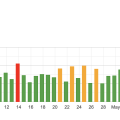Off-page SEO might sound like a fancy term, but it’s really all about building your website’s reputation in places other than your own pages. When you think of off-page SEO, picture activities like getting links from reputable websites, engaging with your audience on social media, and even getting positive mentions from various online sources. It’s these outside signals that show search engines that your site is trustworthy and authoritative. So, while on-page SEO is like tidying up your own house, off-page SEO is more about making sure the neighbors are talking about how great your house is.
What Is Off-page SEO?

What is Off-page SEO?
Have you ever wondered what really goes on behind the scenes to get a website to rank high on search engines? If you think it’s all about tweaking on-page elements like keywords, meta tags, and content, you’re only half right. The other half of the equation is off-page SEO. But what exactly is off-page SEO? And why is it so crucial for your website’s success?
Off-page SEO involves activities conducted outside the boundaries of your website to improve its search engine rankings. If on-page SEO is the cake, off-page SEO is the icing that makes it look appetizing and inviting. So, let’s dive deeper into the world of off-page SEO, shall we?
The Essence of Off-page SEO
Building Authority and Trust
Off-page SEO primarily focuses on building the authority and trustworthiness of your website. When other reputable websites link back to yours, search engines see this as a vote of confidence. Just like a good word-of-mouth recommendation, these backlinks can establish your site as a reliable source of information.
Enhancing Website Visibility
Another key component of off-page SEO is increasing your website’s visibility. By engaging in activities like social media marketing and influencer outreach, you can attract more attention to your site, drive more traffic, and, ultimately, achieve higher rankings in search engine results.
The Main Components of Off-page SEO
Backlink Building
Backlinks are the cornerstone of off-page SEO. When other websites link back to your site, search engines consider this as an endorsement of your content. The more high-quality backlinks you have, the better your site will perform in search engine rankings.
| Type | Description |
|---|---|
| Natural Links | These are earned naturally without any specific effort from the website owner. |
| Manually Built Links | Acquired through deliberate link-building activities such as outreach. |
| Self-created Links | Created by adding links in online directories, forums, or comment sections. |
Social Media Engagement
Engaging actively on social media platforms can drive traffic to your website and improve your online presence. When people talk about and share your content on social media, it signals to search engines that your content is valuable and relevant.
Influencer Outreach
Working with influencers in your niche can provide a significant boost to your off-page SEO efforts. When influencers share or link back to your content, it not only drives traffic but also enhances your website’s credibility and authority.
Guest Blogging
Guest blogging involves writing articles for other websites in your industry. This not only helps you build backlinks but also positions you as an industry expert, thereby boosting your site’s authority.
Local SEO and Citations
Local SEO focuses on optimizing your website for local search results. Creating local citations—mentions of your business’s name, address, and phone number on local directory sites—can significantly impact your off-page SEO efforts.
Why is Off-page SEO Important?
Enhances Authority and Credibility
Search engines use off-page signals to determine how trustworthy and authoritative your website is. Having a robust off-page SEO strategy helps to build this credibility, making it easier for you to rank higher in search results.
Drives Traffic
Off-page SEO activities like social media marketing, influencer outreach, and guest blogging can significantly drive traffic to your site. More traffic usually translates to more conversions, which is always a good thing.
Complements On-page SEO
You can’t ignore one for the other; both on-page and off-page SEO need to work hand-in-hand to reap the best results. Off-page SEO complements your on-page efforts, helping to create a well-rounded, effective SEO strategy.

Strategies for Effective Off-page SEO
High-Quality Backlinks
One of the most impactful off-page SEO strategies is building high-quality backlinks. Aim to get links from reputable, high-authority websites. These backlinks act like votes of confidence in the eyes of search engines.
Content Marketing
Create high-quality, shareable content that provides value to your audience. Content marketing can drive natural backlinks and increase social shares, both of which are crucial for off-page SEO.
Social Media Signals
Maintain an active social media presence and share your content across various platforms. Engage with your audience, respond to comments, and participate in discussions to boost your site’s visibility.
Influencer Collaborations
Reach out to influencers in your niche and collaborate with them to promote your content. Influencers have the ability to drive substantial traffic to your website and improve your site’s authority.
Online Forums and Communities
Participate in online forums and communities related to your industry. Answer questions, share your expertise, and include links to your website when relevant. This can drive traffic and improve your website’s credibility.
Press Releases and Media Coverage
Getting media coverage for your business through press releases and news articles can also boost your off-page SEO. These publications often have high domain authority, which can provide valuable backlinks.
Common Misconceptions About Off-page SEO
It’s Only About Backlinks
While backlinks are a critical component, off-page SEO encompasses much more than that. Social media signals, influencer outreach, and content marketing also play significant roles in a comprehensive off-page SEO strategy.
Quantity Over Quality
Many people think that the more backlinks they have, the better their SEO will be. However, the quality of backlinks is far more important than the quantity. A few high-quality backlinks from reputable sites are far more valuable than numerous low-quality ones.
One-time Effort
Off-page SEO is not a one-time effort; it’s an ongoing process. You need to continuously build and maintain your website’s authority through consistent off-page activities.

Measuring Success in Off-page SEO
Domain Authority (DA) and Page Authority (PA)
Tools like Moz allow you to measure your website’s domain authority (DA) and page authority (PA). These metrics help you understand how well your website is likely to rank in search engine results.
Backlink Profile
Regularly monitor your backlink profile using tools like Ahrefs or SEMrush. Keep an eye on both the quantity and quality of your backlinks.
Referral Traffic
Check your website’s referral traffic using Google Analytics. This metric shows how much traffic is coming from backlinks on other websites.
Social Engagement Metrics
Track social media metrics such as likes, shares, and comments to gauge how well your content is performing on different platforms.
Best Practices for Off-page SEO
Focus on Relevant Websites
When building backlinks or engaging in guest blogging, focus on websites that are relevant to your industry. This relevance enhances the quality of the backlink and its impact on your SEO.
Avoid Black Hat Techniques
Steer clear of black hat techniques such as buying backlinks or spamming forums with your website links. These tactics may yield short-term results but can lead to severe penalties from search engines.
Consistent Effort
Off-page SEO requires consistent, ongoing effort. Regularly engage in backlink building, content marketing, and social media activities to maintain and improve your site’s search engine rankings.
Build Relationships
Building relationships with industry experts, bloggers, and influencers can open up new opportunities for backlinks and collaborations. Establish these connections through networking events, social media, and email outreach.
Common Off-page SEO Tools
Ahrefs
Ahrefs is a comprehensive SEO tool that allows you to analyze your backlink profile, track your rankings, and conduct competitor analysis. It’s a powerful tool for managing your off-page SEO activities.
SEMrush
SEMrush is another versatile SEO tool that provides insights into your backlink profile, competitor backlinks, and much more. It helps you identify new opportunities and monitor your off-page SEO progress.
Moz
Moz offers various tools for monitoring your website’s domain authority, page authority, and backlinks. It’s a valuable resource for measuring the effectiveness of your off-page SEO efforts.
Google Analytics
Google Analytics provides insights into your website’s referral traffic, social media performance, and much more. It’s an essential tool for tracking the impact of your off-page SEO activities.
Conclusion
Off-page SEO is a critical component of a successful SEO strategy. By building high-quality backlinks, engaging on social media, collaborating with influencers, and engaging in content marketing, you can significantly improve your website’s search engine rankings. Remember, off-page SEO is not a one-time effort but an ongoing process that requires consistent, dedicated effort.
So, are you ready to take your off-page SEO to the next level? With the strategies and tips shared in this article, you’re well-equipped to embark on a successful off-page SEO journey. Happy optimizing!











